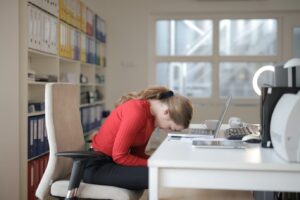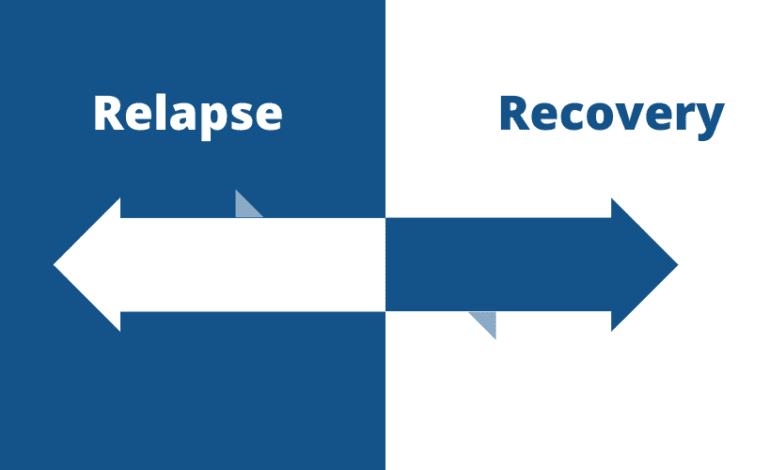“Get your beauty sleep” is an understatement, and we all need quality sleep regularly to thrive. Research shows that adults need 7-9 hours of uninterrupted sleep each night, but unfortunately, our adult society is sleep-deprived. Adults in the United States average six hours sleep each night with hopes of stacking sleep on the weekends, a very unhealthy habit. We live in a hectic, high stimulation world where we are constantly multi-tasking and often with the help of caffeine. We move about our day on autopilot with a never-ending “to-do” list, and when we finally try to unwind, relax and fall asleep, many of us have difficulty falling asleep and staying asleep. We often fall asleep staring at our phones or the television, which is a very unhealthy sleep habit. We have created a society focused on poor sleep habits, long workdays, and limited vacation, and as a result, we are constantly exhausted. Still, we can’t fall asleep because we are simultaneously too preoccupied with our “to-do” lists, our thoughts, and daily stressors. As a result, we sometimes turn to sleep aids to help us get a little more “shut-eye”, another extremely unhealthy habit that can quickly turn into an addiction. Lack of sleep, interrupted sleep, and unhealthy sleep routines leave us feeling groggy the following day, affecting our energy levels, mood, and mental health.

Sleep, depression and anxiety
Research shows that partial sleep deprivation has a significant effect on your mood. Researchers at the University of Pennsylvania found that individuals who slept 4.5 hours a night for one week felt more sad, angry, stressed, and mentally exhausted. However, when these individuals resumed a regular, healthy sleep pattern, they reported a dramatic improvement in their mood and emotions.
Not only do poor sleep habits affect your mood, but your mood and mental state can also affect your quality and quantity of sleep. For example, anxiety increases agitation and arousal, which makes it difficult to fall asleep. Stress causes alertness and arousal, also making it difficult to fall asleep and stay asleep. Individuals under constant stress or who have abnormally exaggerated responses to stress tend to have difficulty sleeping.
There is an essential relationship between mental health and sleep. For example, individuals with depression or anxiety often have trouble sleeping, as difficulty sleeping is often the first symptom associated with depression or an anxiety disorder.
Research has found that 15 to 20 percent of individuals with insomnia will develop major depressive disorder. In one major study of 10,000 adults, individuals with insomnia were five times more likely to develop depression. In addition, lack of sleep can be an even more significant risk factor for anxiety. In the same study, people with insomnia were 20 times more likely to develop panic disorders (a type of anxiety disorder).
While sleep research is still exploring the relationship between depression and sleep, studies have shown that individuals with depression most likely have abnormal sleep problems.
Addiction and sleep
Addiction, whether substance use disorders such as cocaine, opioids or benzodiazepines, or an alcohol use disorder, is highly linked to poor sleep patterns. Alcohol is explicitly a central nervous system depressant. It, therefore, is known to help induce sleep, but it decreases sleep latency, meaning the individual will toss and turn and awaken multiple times during the night, resulting in a poor night’s sleep. Substance use causes sleep problems, but it also works the other way around, meaning insomnia and insufficient sleep can increase the risk of drug use and addiction. Additionally, individuals who abuse drugs and are going through withdrawals will experience insomnia, which fuels drug cravings and can lead to relapse.
Addiction and sleeping pills
Sleeping pills, which can be over the counter or prescription, fall into a category of drugs known as “sedative hypnotics”. They work by slowing down the activity of the brain to induce sleep. There are two types of sleep: REM, when people dream, and non-REM, which has light, medium, and deep portions. Sleeping pills mainly increase the amount of medium-depth non-REM sleep. Many people experience better sleep while taking sleep aids, but a large proportion of individuals wake up feeling groggy, confused, anxious, and hung-over. Sleep aids can be restorative for the right person, but they can also come with the potential for addiction.
Practicing healthy sleep hygiene is incredibly important, both for your mental health and physical health. However, relying on sleeping pills to obtain a decent night’s rest is not a healthy long-term solution.
Sleep hygiene
“Sleep hygiene” refers to regular, healthy sleep habits that can improve your ability to fall asleep and stay asleep throughout the night. Maintaining healthy sleep habits can not only improve sleep disorders such as insomnia but can drastically improve your mental health and reduce your risk of developing an addiction to alcohol or drugs. Practicing healthy sleep hygiene can also help your focus, concentration, productivity, energy, and immune function.
Problems falling asleep and staying asleep and daytime sleepiness are the most obvious signs of poor sleep hygiene. However, just a few simple changes can make the difference between a good night’s sleep and a night spent tossing and turning.
- Maintain a regular and consistent sleep schedule. Go to bed and wake up simultaneously every day, even on weekends or during vacations.
- Get at least 7 hours of uninterrupted sleep each night. Do not “sleep bank” on the weekends.
- Limiting daytime naps to 30 minutes. Napping does not make up for inadequate nighttime sleep. However, a short nap of 20-30 minutes can help to improve mood, alertness, and performance.
- You need regular doses of natural light. This is particularly important for individuals who may not venture outside frequently. Exposure to sunlight during the day and darkness at night helps to maintain a healthy sleep-wake cycle.
- Establish a relaxing bedtime routine.
- Use your bed only for sleep.
- Make your bedroom quiet and relaxing. Keep the room at a comfortable, cool temperature.
- Limit exposure to bright light in the evenings.
- Turn off all electronics at least 30 minutes before bedtime.
- Avoid caffeine in the late afternoon or evening.
- Avoid alcohol before bedtime.
CTA: If you constantly struggle with trouble falling asleep or staying asleep, you may have an underlying mental health disorder such as depression or anxiety. If you find yourself using alcohol or drugs to improve your sleep habits, this can quickly lead to an unhealthy addiction. If you are struggling with a mental health disorder or a substance use disorder, AKUA Mind and Body can help.
Seeking treatment
AKUA Mind and Body provides multiple levels of care for adult males and females struggling with a mental health disorder, a substance abuse disorder, or a co-occurring disorder. The treatment team at AKUA Mind and Body offers clinical excellence and compassion while integrating evidence-based western medicine with eastern holistic approaches. In addition, we provide individualized treatment plans to cater to each client’s unique needs to pave the road for a successful recovery. From detoxification and residential treatment to partial hospitalization and intensive outpatient therapy, AKUA offers state-of-the-art treatment for a wide variety of mental health and addiction disorders. Call us to know more:
1-888-629-6707



